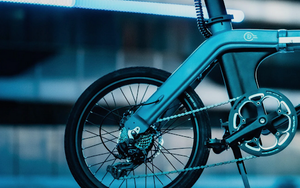Are Electric Scooters Legal in Kent?
Sep 17, 2024
Electric scooters have gained significant popularity in recent years as a convenient and eco-friendly mode of transportation. However, their legal status remains a matter of debate in many parts of the world, including the United Kingdom. In this article, we will delve into the intricacies of electric scooter laws in Kent, shedding light on both the existing legislation and the ongoing discussions surrounding their legality.
Understanding Electric Scooter Laws in the UK
Before we explore the specific regulations in Kent, it is crucial to familiarise ourselves with the basics of electric scooter legislation in the United Kingdom. As of now, electric scooters are classified as Personal Light Electric Vehicles (PLEVs) by the Department for Transport (DfT). Although PLEVs have gained recognition, they are not yet fully legalised for use on public roads, including cycle lanes, in most parts of the UK.
Electric scooters have become increasingly popular as a convenient and eco-friendly mode of transportation. Their compact size and electric motor make them ideal for short commutes and urban travel. However, the current legal framework surrounding electric scooters in the UK presents challenges for riders looking to use them as a practical means of getting around.
The Basics of Electric Scooter Legislation
Under the current UK law, electric scooters are not treated as motor vehicles and, therefore, do not require tax, insurance, or a driving licence. However, their use is restricted to private land with the landowner's permission. There are a range of electric scooters that are great for use on private land, such as the Ducati Scrambler for off-roading, the Swifty Air-E and the Nanorobot Lightning 2.0.
Riding an electric scooter on public roads, pavements, and cycle tracks is currently illegal, except in specific trial areas and designated rental schemes.
Advocates for the legalisation of electric scooters argue that integrating them into existing transportation systems could help reduce traffic congestion and air pollution in urban areas. Proponents also highlight the potential benefits for personal mobility and the accessibility they provide to individuals who may not have access to traditional forms of transportation.
Specific Laws Pertaining to Kent
When it comes to Kent, the use of electric scooters on public roads and other public spaces is not permitted within the county. This means that individuals caught using e-scooters on public roads may face penalties such as fines and points on their driving licence, if applicable.
Where a trial rental scheme is running, it's legal to use a rental e-scooter on a public road or cycle lane, provided you have the correct licence and follow road traffic regulations. Here, local authorities in Kent are exploring the possibility of legalising electric scooters to test the integration of electric scooters into the existing transport network. These trials would assess the impact of e-scooter use on traffic flow, safety, and environmental factors within the county. It is important for residents and visitors in Kent to adhere to the current regulations regarding electric scooter use to avoid potential legal consequences.

The Debate Around Electric Scooter Legality
The legality of electric scooters has sparked a spirited debate across the UK. Supporters of legalisation often highlight the potential benefits, while opponents voice concerns over safety and other issues. Let's take a closer look at both sides of the argument.
Arguments for Legalisation
Proponents of legalising electric scooters argue that they offer a sustainable and efficient alternative to traditional transportation methods. Advocates point to reduced traffic congestion, lower emissions, and greater accessibility for short journeys. Additionally, legalisation could encourage responsible scooter use and pave the way for improved infrastructure to accommodate these vehicles.
A study by University College London (UCL) found that the adoption of e-scooters in Bristol reduced greenhouse gas emissions by up to 45% compared with the trips taken with transport modes that they replaced.
Furthermore, supporters of legalisation emphasise the positive impact on personal health and well-being. Electric scooters provide an opportunity for individuals to engage in physical activity during their daily commute, promoting a more active lifestyle. This increased physical movement can contribute to improved cardiovascular health and overall fitness levels, aligning with public health initiatives to combat sedentary behaviour.
Concerns and Opposition
However, those opposed to legalising electric scooters raise valid concerns. One commonly expressed worry is the potential increase in accidents and injuries, particularly if riders disregard traffic rules and safety precautions. Data shows that 1,269 collisions occurred in the last year involving e-scooters, with seven people killed and 390 seriously injured.
Moreover, some argue that allowing electric scooters on crowded pedestrian areas could pose a threat to vulnerable individuals, such as the elderly or visually impaired.
Another point of contention among opponents is the issue of enforcement and regulation. Without stringent laws and effective monitoring mechanisms in place, there is a risk of chaotic scooter usage patterns that could lead to conflicts with other road users. Concerns also extend to the maintenance of electric scooters, with questions arising about the responsibility for upkeep and safety checks to ensure the vehicles remain in proper working condition.

Impact of Electric Scooter Laws on Users
Understanding the implications of electric scooter laws is crucial for both current and prospective scooter owners. Let's examine the impact of these regulations on scooter users in Kent.
Implications for Scooter Owners
In Kent, where the use of electric scooters on public roads remains illegal, scooter owners must find alternative modes of transportation. While privately-owned e-scooters can still be enjoyed on private land with permission, their usage is limited to those spaces.
Consequences for Non-compliance
Non-compliance with electric scooter laws can have serious consequences. Riders caught using electric scooters on public roads in Kent may face penalties, including fines and potential points on their driving licence. Therefore, individuals are urged to familiarise themselves with the current legislation to avoid legal repercussions.

Navigating the Legal Landscape of Electric Scooters
Given the evolving nature of electric scooter legislation, staying informed and compliant is essential for both scooter owners and potential users. Here are some helpful tips to navigate the legal landscape:
Tips for Staying Informed and Compliant
- Stay updated: Keep an eye on local news and government announcements regarding electric scooter legislation in Kent.
- Seek official guidance: Visit official government websites or consult with local authorities to obtain the most accurate and up-to-date information on electric scooter laws.
- Consider rentals: While privately-owned electric scooters face restrictions, it may be worth exploring rental schemes or trial areas where electric scooters are permitted.
Future Predictions for Scooter Laws in Kent
The future of electric scooter laws in Kent and across the UK remains uncertain. Some speculate that further trials and gradual liberalisation could lead to a broader acceptance of electric scooters on public roads. However, others argue for the need to resolve safety concerns and develop comprehensive infrastructure before expanding their use.

Conclusion
In conclusion, while electric scooters are not currently legal for use on public roads in Kent, the ongoing discussions surrounding their legality highlight the need for thorough examination and consideration. As legislation continues to evolve, it is imperative for both current and potential scooter users to stay informed and compliant to ensure the safety of all road users.






